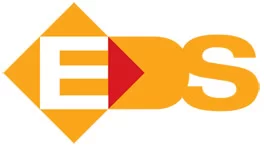Mastering Vendor Audits: A Checklist for Procurement Success
Ensuring Supplier Reliability Through Comprehensive Audits
Vendor audits are a critical step in mitigating risk and ensuring that your suppliers meet the necessary standards for quality, compliance, and operational efficiency. A well-executed audit helps procurement teams assess potential and existing suppliers, verify their capabilities, and minimize disruptions in the supply chain.
This guide outlines the essential components of a successful vendor audit, including key factors such as certifications, production capacity, and quality control processes.
Why Vendor Audits Matter in Global Sourcing
Conducting thorough vendor audits is particularly important when sourcing internationally, where regulatory standards, production practices, and quality control measures can vary significantly. A proactive audit process helps businesses:
- Identify potential risks before entering a contract
- Ensure compliance with industry standards and regulations
- Assess the reliability and efficiency of a supplier’s operations
- Strengthen long-term supplier relationships by setting clear expectations
Without proper auditing, companies may face unexpected delays, product defects, or compliance issues, all of which can have costly repercussions.
Key Elements of a Successful Vendor Audit
A comprehensive vendor audit evaluates multiple aspects of a supplier’s operations to ensure they align with your business needs. Below are the critical factors to assess:
1. Certifications and Compliance
A supplier’s adherence to industry regulations is a strong indicator of their reliability. Check for certifications such as ISO 9001 (Quality Management Systems), ISO 14001 (Environmental Management Systems), and IATF 16949 (Automotive Industry Quality Standards). These certifications demonstrate a commitment to high manufacturing and operational standards. Additionally, verify compliance with labor laws, ethical sourcing guidelines, and safety regulations to avoid potential legal issues.
2. Production Capacity and Scalability
A supplier’s ability to meet your production volume and scale operations as demand fluctuates is crucial. Evaluate their manufacturing capabilities, including machinery, workforce expertise, and facility size. If your business anticipates growth, ensure the supplier has the flexibility to scale up production without compromising quality or delivery timelines.
3. Quality Control Processes
Quality assurance should be a top priority during the audit. Review the supplier’s internal quality control processes, including their inspection protocols, defect resolution procedures, and adherence to industry standards. On-site inspections can provide deeper insights into how raw materials are handled, how quality is monitored at different stages of production, and what measures are in place to prevent defects.
For a more in-depth look at mastering quality control in global sourcing, refer to our article on Mastering Quality Control in International Sourcing.
4. Supply Chain and Logistics Efficiency
Reliable delivery is just as important as product quality. Evaluate how well the supplier manages raw material sourcing, inventory control, and shipping logistics. Delays in any of these areas can lead to disruptions in your supply chain. Work with suppliers who have well-established logistics networks and contingency plans in place to mitigate risks like shipping delays or material shortages.
5. Financial Stability and Business Reputation
A financially unstable supplier poses a significant risk to your supply chain. Review financial statements, assess long-term viability, and check credit ratings where available. Research their reputation in the industry by seeking feedback from other clients and reviewing any available case studies or testimonials.
Common Challenges in Vendor Audits and How to Overcome Them
Conducting a vendor audit is not without challenges. Language barriers, cultural differences, and geographic distance can make it difficult to obtain accurate information. Utilizing third-party auditing services or working with experienced global sourcing partners can help bridge these gaps.
Additionally, some suppliers may provide incomplete or misleading information. Cross-checking records, conducting unannounced inspections, and requesting third-party verification can improve the accuracy of your audit findings.
For more insights on effective vendor management, check out our article on Vendor Identification and Management Best Practices.
Strengthen Your Supply Chain with EDS International
A robust vendor audit process is essential for minimizing risks and ensuring supplier reliability in international sourcing. By thoroughly assessing certifications, production capabilities, quality control measures, logistics, and financial stability, procurement managers can make informed decisions that enhance supply chain efficiency.
At EDS International, we specialize in vendor identification, supplier evaluations, and sourcing strategy development to help businesses build strong, resilient supply chains. Contact us today to find the right suppliers for your needs.
📩 Let’s discuss your sourcing strategy: Contact Us







